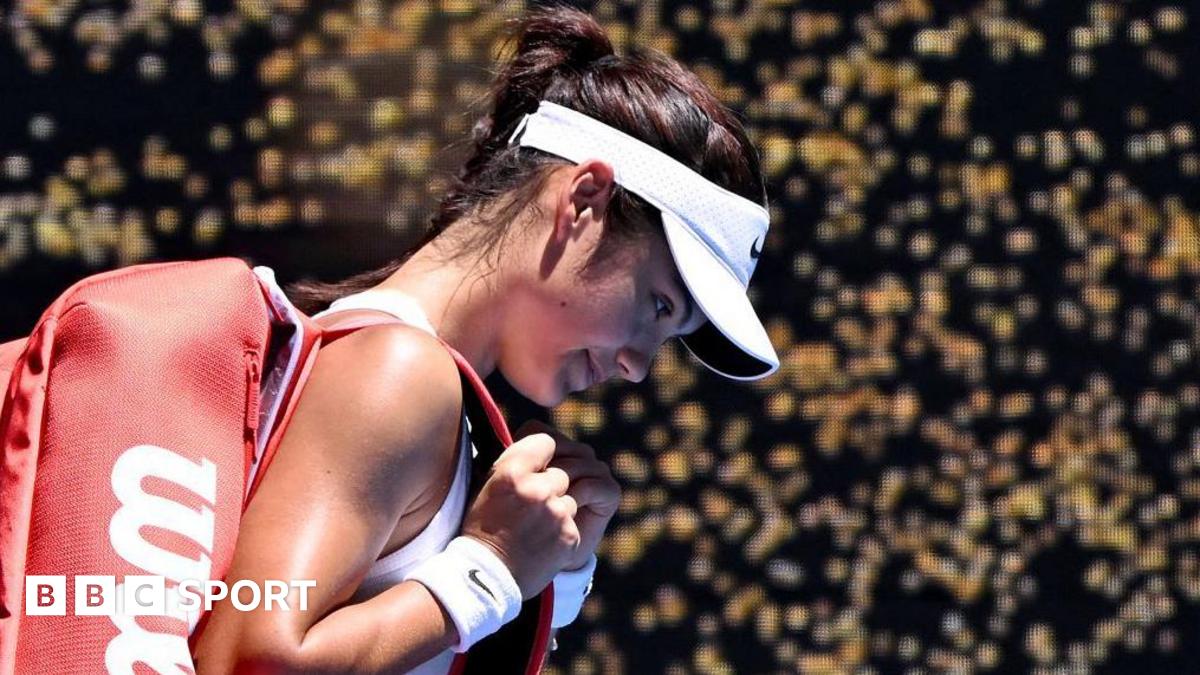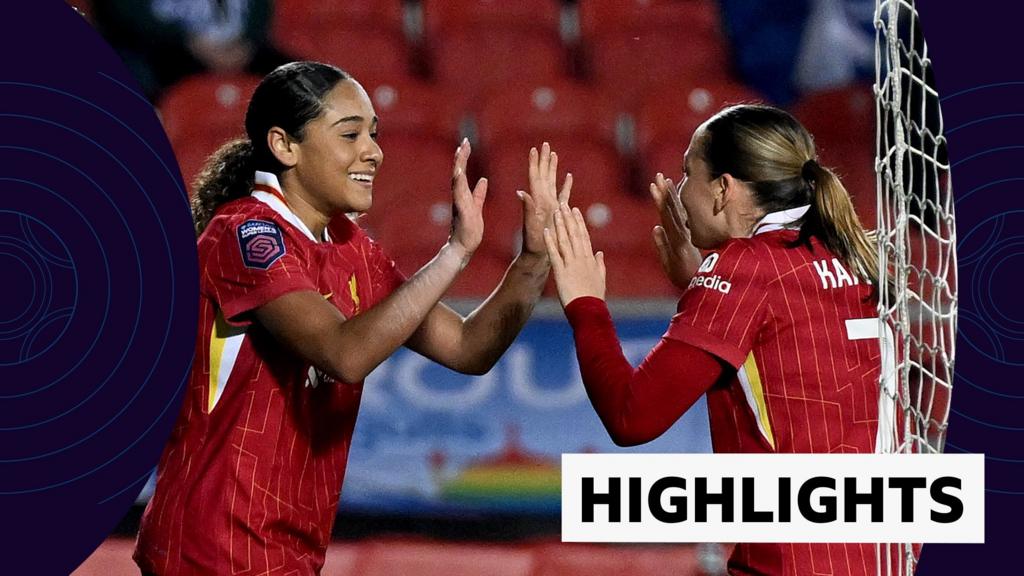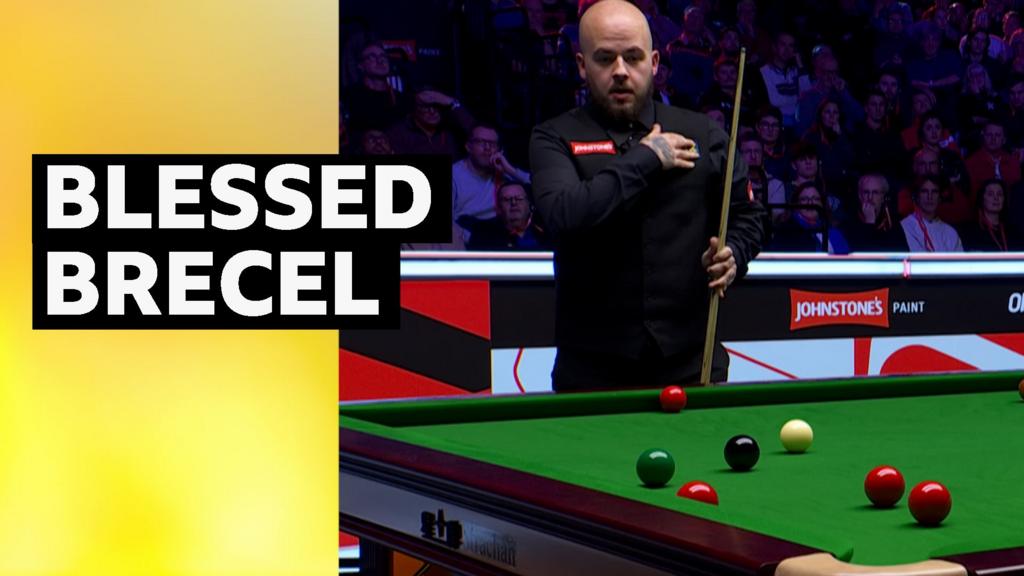ARTICLE AD BOX
What have a teaching assistant, medical student and trainee vet got in common?
They are all among the team chasing an historic first Winter Olympic spot for Great Britain's women's ice hockey team this week.
Some have been sharpening their skills by playing for men's teams, others have gone abroad to develop their game. All are combining the sport with 'real jobs' or study to try to get a step closer to Milan-Cortina 2026.
From learning to skate with a teddy bear to leaving home at 13, those involved have stories to tell. BBC Sport looks at what it has taken to get this far as they prepare for the qualifying event in Sheffield.
Captain Jodie Alderson-Smith is one of around half a dozen GB women who play for a men's team as well as a women's side as they seek a physical edge against "bigger, taller and stronger" teams.
But the men's game is very different - body checking is not allowed in the women's - and she says "some players will go out to hit the girl".
"There are a couple of teams in the league ... [who] don't like it when you do something good and they shout some abuse from the bench, but I just laugh at them at times," said Alderson-Smith, who plays in the English men's fourth tier for Coventry Blaze as well as the women's top tier for Solihull Vixens.
"I'm just like, 'Well, pick on the girl, go on.' It's silly behaviour, really, but it's just what it is."
Alderson-Smith says playing with men also "makes you think a lot quicker".
"Sometimes they're not the right decisions, but they [men] do think a lot quicker... and the passes come quicker."
Playing men's hockey does not always pay off, though.
"I was playing my first game," forward Katie Marsden said. "I got hit by someone, I dislocated my shoulder, and that ended my men's career quite suddenly."
She added that playing men's hockey was "not an ideal solution" as it was "not worth the balance of potentially having career-ending injuries".
It would be better to develop the game through visibility to drive participation in a similar way to what the Lionesses have done for women's football, she said.
There are areas of progress in the women's game, with the players saying increased funding this year has meant they can now access experts in areas such as physiotherapy, strength and conditioning and nutrition.
"[Previously] I think a lot of the girls left little niggles which have then kind of built into a bigger niggle," Alderson-Smith said.
"Whereas now that we can be treated weekly, three times a week if you need it - like people are on us and making sure that we are the best that we can be really."
It also means trainee doctor Marsden is no longer diagnosing her team-mates' ailments.
"Luckily they can turn their heads to them rather than me," she laughed.
There has also been development in equipment with companies increasingly seeking to produce female-specific kit, while UK Sport has put a record £900,000 into ice hockey in this Olympic and Paralympic cycle.
Such is the low profile of GB women's ice hockey that you're not going to find out much about the players by searching online. But speak to them, and their passion and commitment is clear.
Marsden owes her hockey career to a pantomime on ice that she went to as a child. She then learned to skate by chasing after her favourite teddy bear which her mum would throw on to the ice rink.
She left her family behind in Hull at the age of 13 to go to boarding school in Canada to pursue her hockey dream but is now back in England and in her fifth year of medical school.
Goalkeeper Ella Howard, meanwhile, honed her skills on frozen lakes while visiting family in Finland.
The 21-year-old, who is studying at a Calgary University in Canada, has diabetes and wears an insulin pump.
"Before they get on the ice, [other players] might be thinking about how their equipment feels or maybe more strategy, whereas I obviously have to be very dialled in on my numbers, my carbohydrates," she said.
Alderson-Smith, who swapped figure skating for ice hockey after getting free tickets to watch the local team, is a teaching assistant in a special needs school, fitting in gym sessions before work and hockey after it.
She is used to around 30 people watching her matches - mainly friends and family - and so it will be quite a change if the 1,500 capacity arena is full this week.
Also in the 22-strong squad is forward Laura Horwood, who is training to be a vet.
Great Britain are playing in an Olympic qualifying group at iceSheffield this week. They face Latvia on Thursday, Spain on Saturday and the Netherlands on Sunday.
The group winners will progress to February's final Olympic qualifying event.
There will be 10 women's ice hockey teams at Milan-Cortina, with hosts Italy guaranteed a spot along with the six highest-ranked teams. The other three will come from the final qualifying event.
Great Britain, who have never qualified, are ranked 21st and the second highest in their group.
Sunday's match against the Netherlands (17th) could be a winner-takes-all encounter.
"I'd like that to be our gold medal game," head coach Mike Clancy said.
Great Britain's men, who last qualified in 1948, are out of the running for the 2026 Games.

 1 month ago
8
1 month ago
8








 English (US) ·
English (US) ·